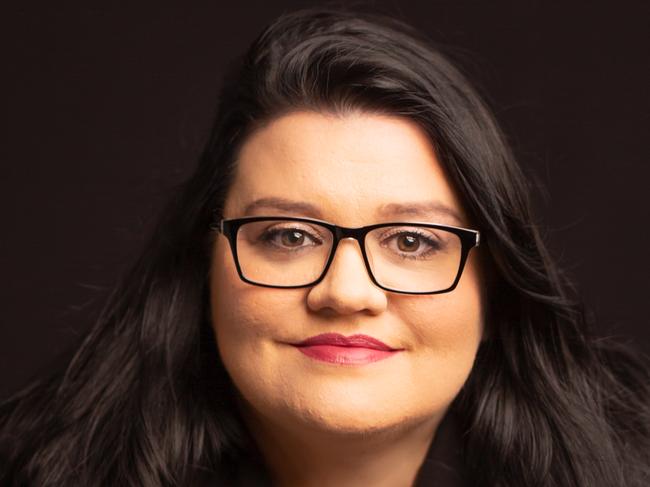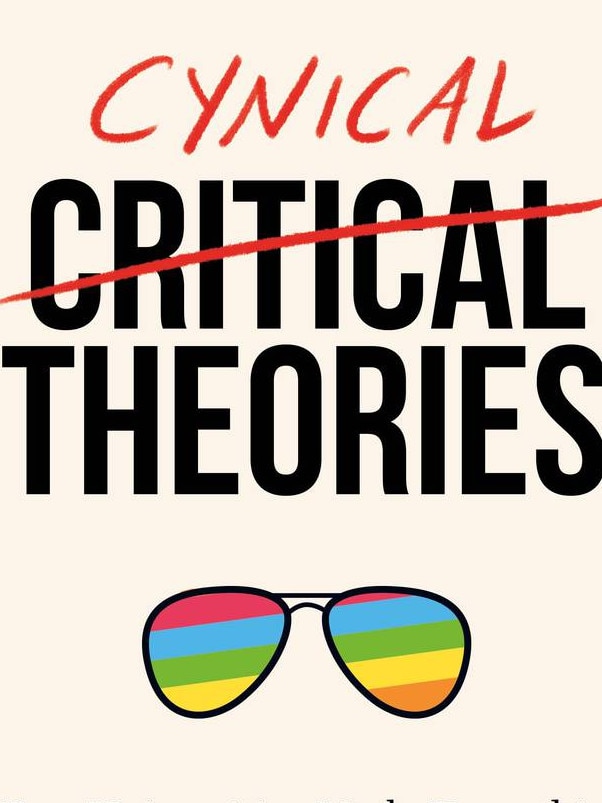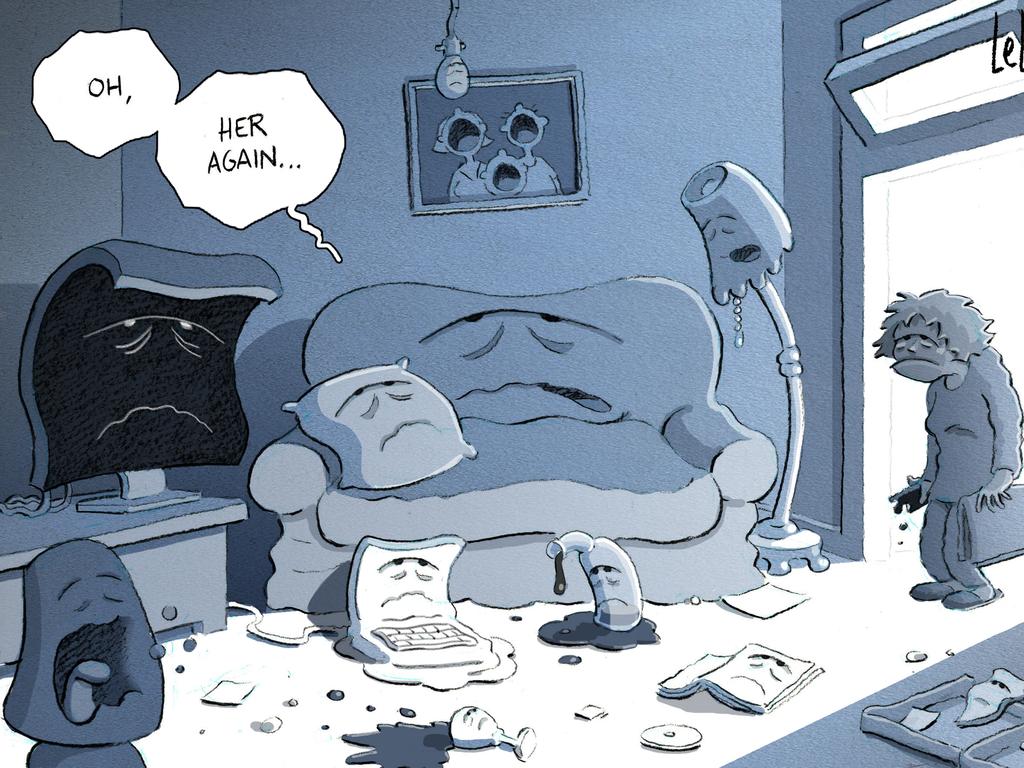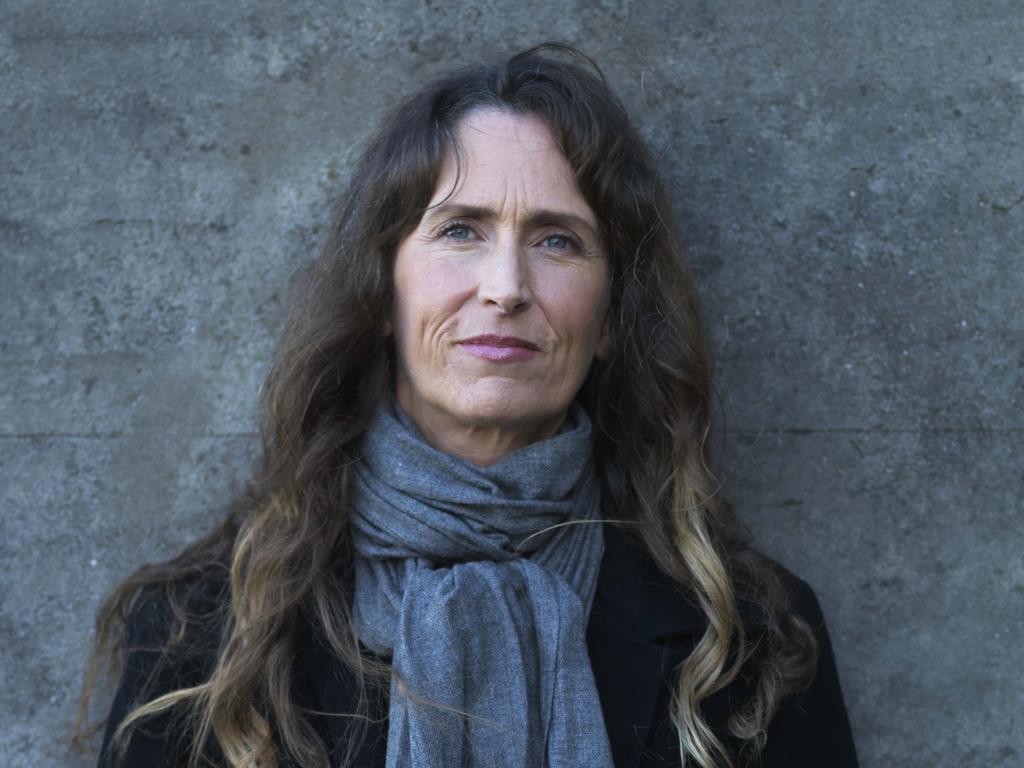Helen Pluckrose, fighting against the ‘fundamentalist’ religion of identity politics and cancel culture
Helen Pluckrose is fighting against an authoritarian intellectual revolution intolerant of dissent.

Helen Pluckrose describes herself as a secular liberal humanist, dog lover, mother, food masher and — more surprisingly for someone who planned to become a historian — an “exile from the humanities”. “I cannot be what I wanted to be, which is a feminist historian looking at literature … because I’m expected to believe in things that I don’t think are true,” the London author tells Review.
Pluckrose says that while studying as an undergraduate and master’s student in Britain, “I wanted to look at women’s social history, with an interest in how women empowered themselves”. Her research focused on late medieval and early modern religious writing by women, yet “intersectionality and queer theory have come in and made it very difficult to address these (historical) gender issues without using these adapted theories”. While she had one supportive professor, she says the extent to which theory is mandated at universities “means you just can’t step outside it”.
Now the editor of digital magazine Areo, named after Milton’s famous address about freedom of speech, she says, more in regret than anger, that within humanities departments today, “there’s not a lot of respect for liberal humanism”.

Her tone and language may be measured, yet Pluckrose, 46, is one of the three scholars who were behind the recent “grievance studies” sting, which mercilessly exposed the intellectual sophistry and shoddy scholarship within fields beholden to identity politics, including cultural, gender, queer, critical race and fat studies. Between 2017 and 2018 the trio wrote 20 bogus papers on some of history’s “worst” ideas and couched them in postmodern theory and jargon.
They sat back, waited and cackled into their smartphones as seven of the fake papers were accepted by peer-reviewed journals. The first to be accepted was about rape culture among dogs and was titled Human Reactions to Rape Culture and Queer Performativity at the Dog Park. Astoundingly, one academic reviewer called it “incredibly innovative”.
Pluckrose and her partners in intellectual crime were unmasked by The Wall Street Journal in 2018 and the affair was reported around the world.
Now, with fellow hoaxer American mathematician James Lindsay, Pluckrose has re-entered the fray and written the provocative, carefully researched book Cynical Theories: How Universities Made Everything about Race, Gender and Identity — and Why This Harms Everybody, which traces the postmodern, intellectual origins of identity politics and cancel culture.
Cynical Theories also explores how a rising tide of militant social justice activism and identity politics has spread from the academy and inundated corporations, civil services, the arts, social media and even the health sector. It quotes scholars and theorists who argue that mathematics is a form of Western imperialism; that there is no such thing as biological sex and that heterosexuality is a social construct; that white people are complicit in systemic racism by virtue of being white; and that obese people who follow medical advice about losing weight are suffering from a kind of Stockholm syndrome since their obesity is a “socially constructed problem”.
Meanwhile, campaigns to decolonise history, philosophy and literature curriculums, Pluckrose and Lindsay write, have morphed from demands that neglected perspectives be included into “drives to decolonise everything from hair to English literature curricula, to tear down paintings and smash statues and to erase history”.
The authors argue that all this is having “a profound influence on our culture” and that “no one is entirely safe from its abuses”. Once institutionalised, the new wave of theories become “a kind of authoritarianism”, they say. Theorists and activists “have created a new religion” that is “actively hostile” to reason, science and capitalism and “sanctifies victimhood. This, increasingly, is the fundamentalist religion of the nominally secular left.”
The book, which is released in Australia next week, is being reprinted in the US and has already reached the top spot on Amazon’s list of philosophy bestsellers. “If you want to know the philosophy behind cancel culture and why it is so creepy, get this book,” says Somali-born Dutch-American author and activist Ayaan Hirsi Ali, while Alan Sokal, co-author of Fashionable Nonsense: Postmodern Intellectuals’ Abuse of Science, calls it “important and timely”.
“It’s remarkable, the degree of interest,” Pluckrose says, admitting she assumed the title would have only niche appeal given its postmodernist concerns. “Seems not!” she says brightly as she fends off her two sparring labradors, who are impatient for their morning walk.
Pluckrose and Lindsay show how theories that lack empirical evidence or logic have become so institutionalised, people who transgress against them — from supermarket staff to academics and celebrities — are subjected to public shaming, cancel culture or loss of their jobs.

“I think it’s becoming a norm now that we see things in this way,” says Pluckrose, a self-described “centrist by nature and left-wing on economic issues … We see big corporations firing people, disciplining people for having unorthodox views. In the academy there’s an awful lot of self-censorship.”
As if on cue, two days before we speak, British pop singer Adele was accused, in a social media pile-on, of appropriating Caribbean culture by styling her hair into African bantu knots and wearing a bikini top depicting the Jamaican flag. “It is the usual anti-liberal approach,” says Pluckrose, noting how the singer was paying tribute to London’s Notting Hill Carnival, which was cancelled this year due to COVID-19. This festival usually entails a broad community celebration of Britain’s West Indian community, including dressing up and masquerade.
“This is getting ever more dangerous,” says Pluckrose. “We’re seeing (objections to) cultural appropriation more and more in art and literature — what people are allowed to write about, which characters they’re allowed to write about — and this is causing quite a problem for artistic independence.”
Even the Harry Potter books aren’t safe. JK Rowling has been criticised because her mega-selling children’s books lacked non-white or trans characters; but she also was attacked for incorporating Native American wizarding lore into her fantasy world, says Pluckrose.
The writer and editor became instantly notorious two years ago when the grievance studies affair was uncovered and she, Lindsay and Portland State University academic Peter Boghossian were revealed as architects of the sting. They had written the bogus papers collectively, and along with the infamous “dog park” article, the fake papers that were published included excerpts from Mein Kampf rewritten in feminist language, and an argument that men could curb their transphobia by anally penetrating themselves with sex toys.
Pluckrose says the faux paper “I am most attached to argued that only oppressed minorities could legitimately use humour … It was called an excellent contribution to feminist philosophy, but its essential point was you shouldn’t actually have any opinions of your own unless you have an appropriate marginalised identity. It’s the nub of the problem.”
The trio’s aim was to expose the lack of reason, evidence-based research and inconsistent ethics within those areas of academe where identity politics and critical theory rule. They were cheered on by some high-profile academics, but Boghossian was investigated by his university and banned from doing further research until he undertook further training.
Pluckrose says that mostly, “we had the normal response that we expected, which was that even though we published seven papers … we still didn’t understand it (theory) … our papers got in by mistake, that this happens in all fields, that we’re secretly Nazis and fascists”.
The latter reaction is in keeping with a new wave of social justice scholarship and activism, which, according to Cynical Theories, “tolerates no dissent and expects everyone to agree or be ‘cancelled’ ”. The book takes issue with critical race theory and the international bestseller White Fragility, by American “whiteness studies” lecturer Robin DiAngelo. DiAngelo is caucasian and, according to Pluckrose and Lindsay, contends that “all white people are racist … because of the systems of powerful racist discourses we were born into”.
Pluckrose says she believes “we are seeing a genuine attempt at a cultural revolution in the US. I think it will get pushed back, but my worry is that it will get pushed back by equally illiberal, right-wing forces.”
She and Lindsay reject illiberal leftism not because they are closet conservatives but because it is “wrongheaded, dangerous” and does little to assist the groups it purports to help. They say the answer lies in a return to classical liberalism that encourages difference of opinion, while acknowledging that racism, sexism and discrimination against minorities are serious problems that must be acted on and analysed through serious scholarship rather than “sophistry”.
Pluckrose is active on Twitter, where she has 63,000 followers, some of whom have written to her from India, Brazil and Australia about their experiences of identity politics-inspired intolerance. One meme depicts her as “Helen of Arc” in full body armour, sword raised and flames behind her. “Here it seems I am Helen of Arc, whose diet has been most successful,” she quips of her svelte, warrior-like alter ego.
When we speak, she is putting the finishing touches on the Cynical Theories audiobook. A year ago she spoke at a Ramsay Centre event in Sydney, and she and Lindsay have frequently collaborated with Melbourne filmmaker Mike Nayna, who is working on a new documentary about the grievance studies affair and broader freedom of speech issues.
Why stick her head above the parapet again, rather than pursue the quiet life of, say, an independent historical researcher? “I’m not reliant on an institution — a university or a business to support me,” Pluckrose replies. “I have that bit of leeway to push back at the problem. I am also personally interested in epistemology and ethics; how we decide what is true, how we decide what is morally right. I am more fortunate than most people. I am self-employed, I’m sort of financially independent — I’m very difficult to cancel.”
Cynical Theories by Helen Pluckrose and James Lindsay, Allen & Unwin, $39.99, is out on Tuesday.




To join the conversation, please log in. Don't have an account? Register
Join the conversation, you are commenting as Logout